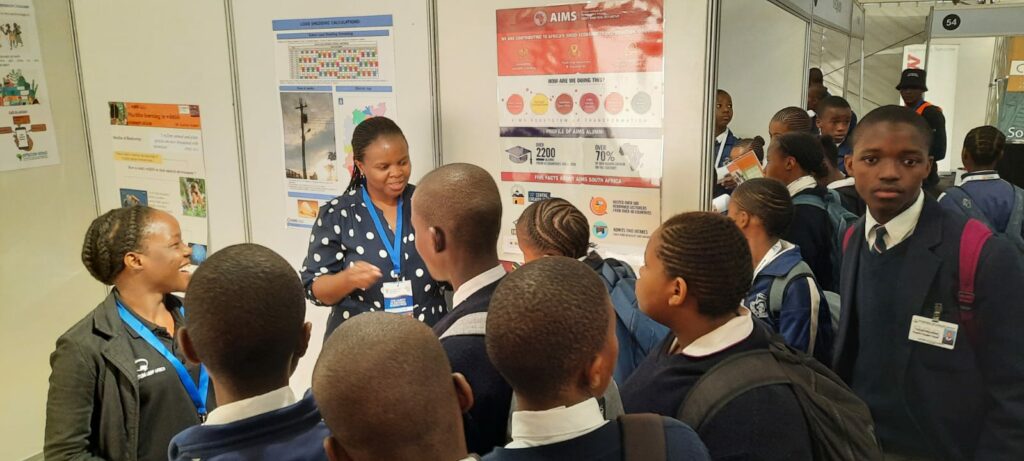Dr Rejoyce Gavhi-Molefe, House of Science Manager, co-authored the book chapter on Building Capacity for Science Communication in South Africa: Afrocentric Perspectives From Mathematical Scientists in a newly published book on Race and Sociocultural Inclusion in Science Communication, edited by Dr Elizabeth Rasekoala (affiliation – African Gong). The book is part of the Bristol University Press Contemporary Issues in Science Communication series. The series aims to provide multidisciplinary knowledge and practical suggestions for transforming practice in the field. The book featured 30 authors (science communicators, academics, practitioners, researchers and social scientists) from the global North and South.
Globally, the past decade has seen the proliferation of the science communication agenda across a range of platforms. In the African continent, science communication has assumed an even more critical role, particularly when viewed against the backdrop of the structural and infrastructural deficiencies that continue to hamper science and development. Thus, without the advancement of the science communication agenda, attempts at addressing pressing developmental challenges while simultaneously moulding a scientifically literate African society are doomed to fail. In South Africa, the imperative for scientists to engage actively with the broader society emerged after the country became a democracy in 1994. It was envisaged that closing the gap between science and society would help build a transformative and effective National System of Innovation (NSI) for the country’s sustainable development, progressive democracy, and the growth of a literate, informed society. The engagements continue to be shaped by the pernicious legacies of apartheid, which are related to socio-cultural, racial and gender inequalities. These challenges coupled with their (authors) experiences as South African mathematical scientists involved in the field and practice of science communication, lead them to pose this pressing critical question:
“Where are the essential ‘foot soldiers’ and resources for the effective and sustainable delivery of science communication activities in the South African scenario?”
In their book chapter, Drs Gavhi-Molefe and Rudzani Nemutudi (affiliation – NRF: iThemba LABS) argue that despite the South African government’s well-developed policy positions, there are gaps in the practical implementation of its scientists’ imperative to deliver, through meaningfully resourced mechanisms, a viable, sustainable and impactful science communication agenda. The authors suggest that there is a need for ‘foot soldiers’ and adequate resources to deliver science communication activities in the country.
They emphasize the need to equip and grow the critical mass of science communicators in South Africa within holistic, socio-cultural and empowering ethical frameworks, as the science landscape in South Africa remains predominantly Eurocentric. The chapter elaborates on how the capacity-building Afrocentric programme – Africa Scientifique: Leadership, Knowledge & Skills for Science Communication – delivered annually since 2020 at AIMS South Africa in partnership with African Gong, has demonstrated the potential to address the aforementioned gaps and challenges.

